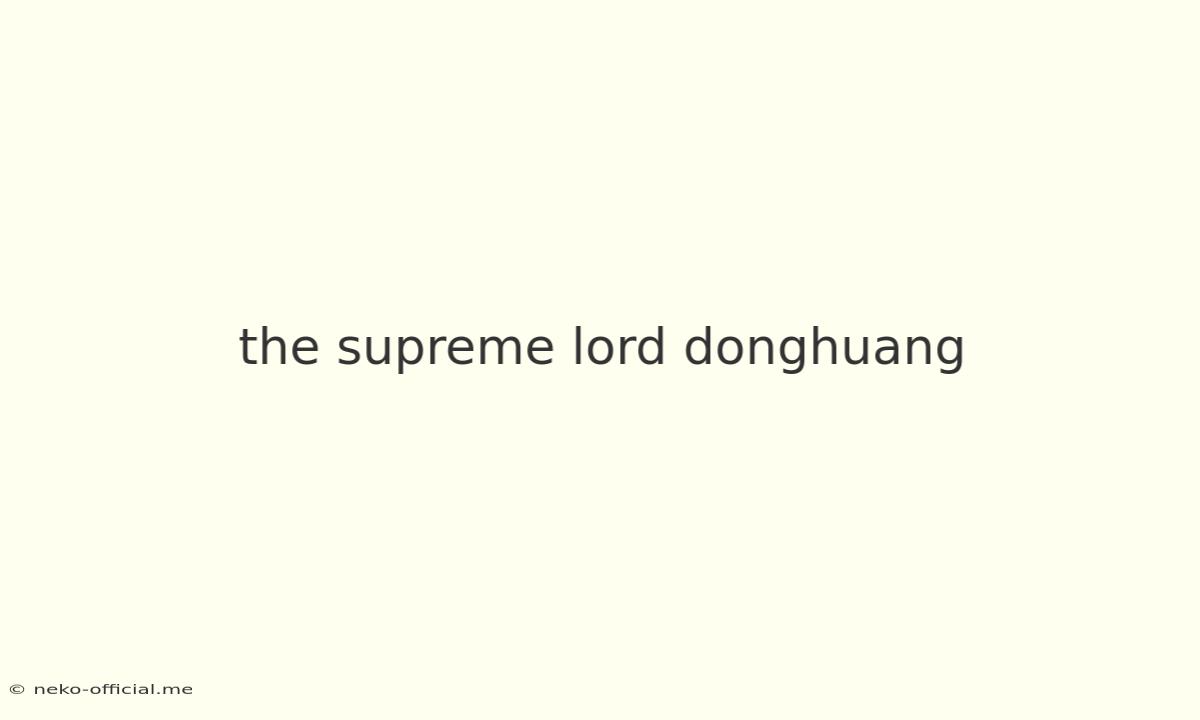The Supreme Lord Donghuang: A Figure of Myth and Legend
The Supreme Lord Donghuang, also known as Donghuang Taiyi or simply Taiyi, is a powerful deity in Chinese mythology. He holds a prominent position as the ruler of the heavens and the supreme lord of the cosmos. While his specific role and attributes vary across different sources, his overarching significance as a creator god and cosmic force remains constant.
Origins and Attributes
The origins of Donghuang are deeply intertwined with ancient Chinese beliefs and cosmology. He is often associated with the east and the sun, embodying the life-giving force and creative energy of the cosmos.
Some accounts describe Donghuang as a dragon king, the first celestial emperor, or the ruler of the three realms. He is depicted as a giant, powerful figure who oversees the balance of the universe and controls its fundamental forces.
Donghuang in Ancient Texts
Donghuang's presence is evident in a variety of ancient Chinese texts, including:
- The Classic of Mountains and Seas: This ancient text describes Donghuang as the ruler of the eastern seas, residing in the heavenly realm and wielding immense power over the elements.
- The Classic of Poetry: This collection of ancient poems often refers to Donghuang as the lord of the sun and the source of light.
- The Huainanzi: This philosophical text discusses Donghuang as the prime mover of the cosmos, responsible for creating the world and guiding its evolution.
Donghuang and the Taoist Tradition
Within Taoist mythology, Donghuang often appears as a powerful deity associated with the cosmic energy known as qi. He is seen as a manifestation of the Dao and a symbol of ultimate power.
Some Taoist texts portray Donghuang as a celestial sage who teaches the secrets of immortality and cosmic harmony. His teachings emphasize the importance of living in accordance with the Dao and cultivating inner harmony.
The Legacy of Donghuang
Despite his mythical status, Donghuang continues to exert a powerful influence on Chinese culture and spirituality. His role as a creator god and cosmic ruler continues to inspire awe and reverence.
His association with the east and the sun remains deeply embedded in Chinese cultural symbolism. He is often depicted in artwork and literature as a symbol of power, authority, and cosmic order.
The teachings and myths surrounding Donghuang serve as a reminder of the interconnectedness of all things and the importance of seeking harmony with the natural world. He remains a powerful figure in the Chinese imagination, embodying the eternal forces of creation, balance, and cosmic order.
